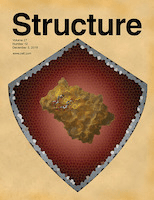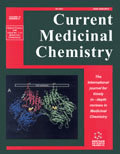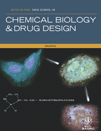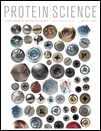
JOURNAL OF BIOMOLECULAR STRUCTURE & DYNAMICS
Scope & Guideline
Exploring the Intricacies of Biomolecular Dynamics
Introduction
Aims and Scopes
- Biomolecular Dynamics and Interactions:
Research primarily revolves around the dynamic behavior and interactions of biomolecules, including proteins, nucleic acids, and small molecules, to understand their functional mechanisms. - Computational Drug Discovery:
The journal showcases innovative computational techniques for drug discovery, including molecular docking, molecular dynamics simulations, and virtual screening, to identify potential therapeutic agents. - Natural Products and Phytochemicals:
There is a strong emphasis on the exploration of natural products and phytochemicals as potential inhibitors or therapeutic agents against various diseases, particularly through computational methods. - Multi-target Approaches:
Research often involves multi-target strategies to enhance therapeutic efficacy, focusing on complex diseases like cancer and infectious diseases, utilizing systems biology and network pharmacology. - Vaccine Development and Immunoinformatics:
The journal includes studies on vaccine design and development using computational approaches, particularly in response to emerging viral infections like COVID-19.
Trending and Emerging
- AI and Machine Learning in Drug Discovery:
The integration of artificial intelligence and machine learning techniques in drug discovery is on the rise, showcasing a trend towards data-driven approaches that enhance predictive modeling and screening efficiency. - COVID-19 Related Research:
Research targeting SARS-CoV-2, including the development of vaccines and inhibitors, remains a significant focus, reflecting the ongoing global health impact of the pandemic. - Systems Biology and Network Pharmacology:
There is an increasing trend towards employing systems biology and network pharmacology approaches to understand complex interactions within biological systems and to identify novel therapeutic targets. - Phytochemical Research and Natural Products:
The exploration of phytochemicals and their potential therapeutic applications is gaining momentum, with more studies focusing on their molecular interactions and efficacy as drug candidates. - Protein-Protein Interaction Studies:
Research focusing on protein-protein interactions, particularly in the context of disease mechanisms and therapeutic targets, is emerging as a prominent theme, indicating a shift towards understanding molecular networks.
Declining or Waning
- Traditional Medicinal Chemistry:
There appears to be a waning interest in classical medicinal chemistry approaches focused solely on small molecule design, as the field increasingly shifts towards integrating computational and biological methods. - Single Target Drug Discovery:
The focus on single-target drug discovery is declining in favor of multi-target approaches that consider the complexity of biological systems and disease mechanisms. - Experimental-Only Studies:
Research papers that rely solely on experimental methods without computational backing are becoming less common, reflecting a trend towards more integrated methodologies. - Basic Biochemical Studies:
There is a noticeable decrease in the publication of basic biochemical studies that do not incorporate computational analysis, as the field evolves to prioritize interdisciplinary approaches.
Similar Journals

PROTEINS-STRUCTURE FUNCTION AND BIOINFORMATICS
Illuminating the Pathways of Protein SciencePROTEINS - STRUCTURE FUNCTION AND BIOINFORMATICS, published by WILEY, is a leading journal in the fields of biochemistry, molecular biology, and structural biology, recognized for its significant contribution to protein research since its inception in 1986. With its impressive rankings in the Q1 category for Biochemistry and Q2 for both Molecular Biology and Structural Biology in 2023, the journal serves as an essential resource for researchers and professionals seeking to explore the intricate relationships between protein structures and their functions. The journal, based in the United States, operates without an Open Access model, ensuring a curated selection of high-quality peer-reviewed articles that drive innovation and collaboration in the scientific community. Engaging with the robust content of PROTEINS not only bolsters academic scholarship but also opens avenues for groundbreaking discoveries that are pivotal in the advancing field of bioinformatics.

CURRENT DRUG TARGETS
Pioneering Discoveries in Drug DevelopmentCURRENT DRUG TARGETS is a leading peer-reviewed journal dedicated to advancements in the fields of Clinical Biochemistry, Drug Discovery, Molecular Medicine, and Pharmacology. Published by Bentham Science Publishers Ltd, this esteemed journal has solidified its position in the academic community with a 2023 Q2 ranking in several categories, highlighting its influence and relevance in drug research and development. With an ISSN of 1389-4501 and E-ISSN 1873-5592, CURRENT DRUG TARGETS facilitates the dissemination of high-quality articles that explore novel therapeutic strategies and drug design principles. Catered to researchers, professionals, and students, the journal has a commitment to advancing knowledge while addressing contemporary challenges in pharmacological sciences. As it converges from 2000 to 2024, CURRENT DRUG TARGETS remains a vital resource in understanding the complexities of drug action and interaction, making it indispensable for anyone pursuing cutting-edge research in related disciplines.

STRUCTURE
Pioneering discoveries in the realm of structural biology.STRUCTURE is a premier academic journal published by CELL PRESS, dedicated to advancing the field of structural biology and molecular biology since its inception in 1993. With an impressive reputation, it is recognized as a Q1 journal in both Molecular Biology and Structural Biology categories, reflecting its high impact within the academic community. The journal holds a significant position in Scopus rankings, placing 10th among 49 in Structural Biology and 100th among 410 in Molecular Biology, marking it as a key resource with a strong influence on ongoing research. Researchers and professionals alike will find STRUCTURE an invaluable platform for disseminating cutting-edge findings related to protein structure, dynamics, and interactions, fostering insights that can lead to groundbreaking applications in medicine and biotechnology. Although the journal follows a traditional subscription model, it continues to attract a diverse array of submissions, ensuring a vibrant exchange of knowledge in the ever-evolving landscape of structural and molecular biology. Access to its content can enhance the understanding of intricate biological mechanisms, making it essential reading for experts, students, and anyone passionate about the molecular underpinnings of life.

CURRENT MEDICINAL CHEMISTRY
Illuminating Pathways in Organic Chemistry and Pharmacology.Current Medicinal Chemistry is a leading journal published by Bentham Science Publishers Ltd, known for its rigorous focus on the multifaceted realm of medicinal chemistry. With an ISSN of 0929-8673 and E-ISSN 1875-533X, the journal plays a crucial role in disseminating high-quality research findings that bridge the gap between chemistry and health sciences. Operating from Sharjah, United Arab Emirates, it has been a prominent scholarly resource since its inception in 1994, and is expected to continue until 2024. Current Medicinal Chemistry has earned its place in the academic community with an impressive impact factor and categorization in Q1 and Q2 quartiles across various disciplines, including Organic Chemistry, Biochemistry, Drug Discovery, and Pharmacology, highlighting its substantial contribution to these fields. Notably, it ranks 24th in Organic Chemistry and is within the 88th percentile, underscoring its appeal to researchers, professionals, and students alike who are keen on exploring cutting-edge advancements in drug design and development. Although it is not an open-access journal, it provides vital content that informs and inspires innovation in medicinal chemistry, appealing to a global audience committed to enhancing human health through scientific discovery.

BIOPHYSICAL CHEMISTRY
Innovating research at the crossroads of chemistry and biology.BIOPHYSICAL CHEMISTRY, published by Elsevier, is a prestigious journal with a long-standing tradition since its inception in 1973. This highly respected journal focuses on the intersections of biochemistry, biophysics, and organic chemistry, providing a critical platform for researchers, professionals, and students to disseminate pivotal findings in these dynamic fields. With an impressive impact factor that reflects its robust academic influence and high citation rates, it ranks within the Q2 quartile among its peers in multiple categories, indicating its significance in the scholarly community. The journal, hosted in the Netherlands, encompasses a diverse range of topics, from molecular interactions to protein folding, and serves as an essential resource for those engaged in cutting-edge research. Researchers looking to share their work with a global audience will find BIOPHYSICAL CHEMISTRY an invaluable outlet, fostering the advancement of knowledge in this crucial area of science. For more information, visit the journal's page on the Elsevier platform.

JOURNAL OF MOLECULAR RECOGNITION
Pioneering Research in Biochemical InteractionsJOURNAL OF MOLECULAR RECOGNITION, published by Wiley, is an esteemed academic journal that has been at the forefront of molecular biology and structural biology research since its inception in 1988. With its ISSN 0952-3499 and E-ISSN 1099-1352, this journal serves as a vital platform for disseminating innovative studies and findings in the realms of biochemical interactions and molecular structure elucidation. Although currently positioned in Quartile 4 of both molecular and structural biology categories based on 2023 metrics, the journal is dedicated to advancing knowledge in quantitative and qualitative molecular recognition processes. Researchers, professionals, and students alike will find that this journal is instrumental in keeping abreast of cutting-edge developments in the field, even as it continues to build its impact and reputation within the dynamic research landscape. Located in the United Kingdom, it is committed to promoting a diverse range of studies that drive forward the understanding of molecular interaction phenomena, thus empowering its readership to contribute effectively to the field.

Chemical Biology Letters
Illuminating the Path of Chemical Interactions in LifeChemical Biology Letters is a prominent academic journal dedicated to the evolving field of biochemistry and its applications in medical and clinical contexts. Published by ScienceIn Publications, this journal serves as a vital platform for researchers, professionals, and students alike, showcasing cutting-edge findings and innovations that drive forward our understanding of chemical interactions in biological systems. With its scope ranging from molecular biology to clinical biochemistry, Chemical Biology Letters is committed to advancing knowledge and fostering collaboration within the scientific community. Recognized for its quality, the journal is categorized in Q4 for Biochemistry and Molecular Biology fields, while achieving notably higher ranks in Medical Biochemistry, reflecting its significant contributions to the discipline. Aiming to remain accessible to a diverse audience, the journal is published in open access format, inviting researchers worldwide to explore and share invaluable insights. Established in 2014, it continues to grow in impact and relevance, paving the way for advancements in both theoretical and applied research within the realm of chemical biology.

Chemical Biology & Drug Design
Exploring the frontiers of medicinal chemistry and drug design.Chemical Biology & Drug Design, an esteemed publication by WILEY, serves as a vital platform for the dissemination of pioneering research in the interdisciplinary fields of biochemistry, drug discovery, molecular medicine, organic chemistry, and pharmacology. With a dedicated commitment to advancing the understanding of chemical interactions and drug development, this journal not only fosters innovation but also bridges the gap between theoretical research and practical applications. It boasts an impressive impact factor and is recognized in the 2023 category quartiles as Q3 in Biochemistry and Molecular Medicine, and Q2 in Drug Discovery, Organic Chemistry, and Pharmacology, indicating its relevance and influence in these crucial areas. The journal’s rankings across various Scopus categories further solidify its position as a reputable resource for researchers, professionals, and students striving to stay at the forefront of medicinal chemistry and drug design. While primarily traditional access-based, the journal's evolving scope from 2006 to 2024 ensures an ongoing contribution to essential scientific dialogue, making it an indispensable read for those committed to advancing health sciences.

PROTEIN SCIENCE
Advancing the Frontiers of Protein ResearchPROTEIN SCIENCE, published by Wiley, is a premier journal dedicated to the field of biochemistry, molecular biology, and medicine, boasting an impressive impact factor that reflects its influence and importance within the academic community. Established in 1992, the journal has continuously provided a platform for high-quality research, with a current classification in the top quartile (Q1) for its critical contributions to the understanding of protein structure and function, as well as its applications in health and disease. With a Scopus ranking placing it in the 91st percentile among its peers, PROTEIN SCIENCE publishes cutting-edge studies and reviews that are essential for researchers, professionals, and students seeking to advance their knowledge in protein research. Although it does not currently offer open access options, the journal remains dedicated to disseminating vital findings that support the ongoing advancements in molecular biology and biochemistry. Researchers can count on PROTEIN SCIENCE for consistently rigorous peer-reviewed content that fosters meaningful dialog and innovation in the life sciences.

AIMS Biophysics
Innovating biophysics research for a deeper understanding of biology.AIMS Biophysics, published by the American Institute of Mathematical Sciences (AIMS), is an esteemed open-access journal dedicated to advancing the fields of biophysics, biochemistry, molecular biology, and structural biology. Launched in 2014, this journal provides a platform for researchers and professionals to disseminate high-quality research findings that contribute to the understanding of complex biological systems at the molecular level. With an ISSN of 2377-9098, AIMS Biophysics is indexed in Scopus, where it ranks in the fourth quartile across several categories, reflecting its commitment to addressing important issues within the scientific community. The journal aims to foster interdisciplinary collaboration and innovation through the publication of original research, reviews, and methodologies that advance the field. The open-access model ensures that cutting-edge research is freely available, promoting global access to scientific knowledge and enhancing visibility for authors. Nestled in the vibrant scientific landscape of the United States, AIMS Biophysics is poised to impact the evolving discourse in biophysics and related areas as it continues through its convergence period from 2014 to 2024.